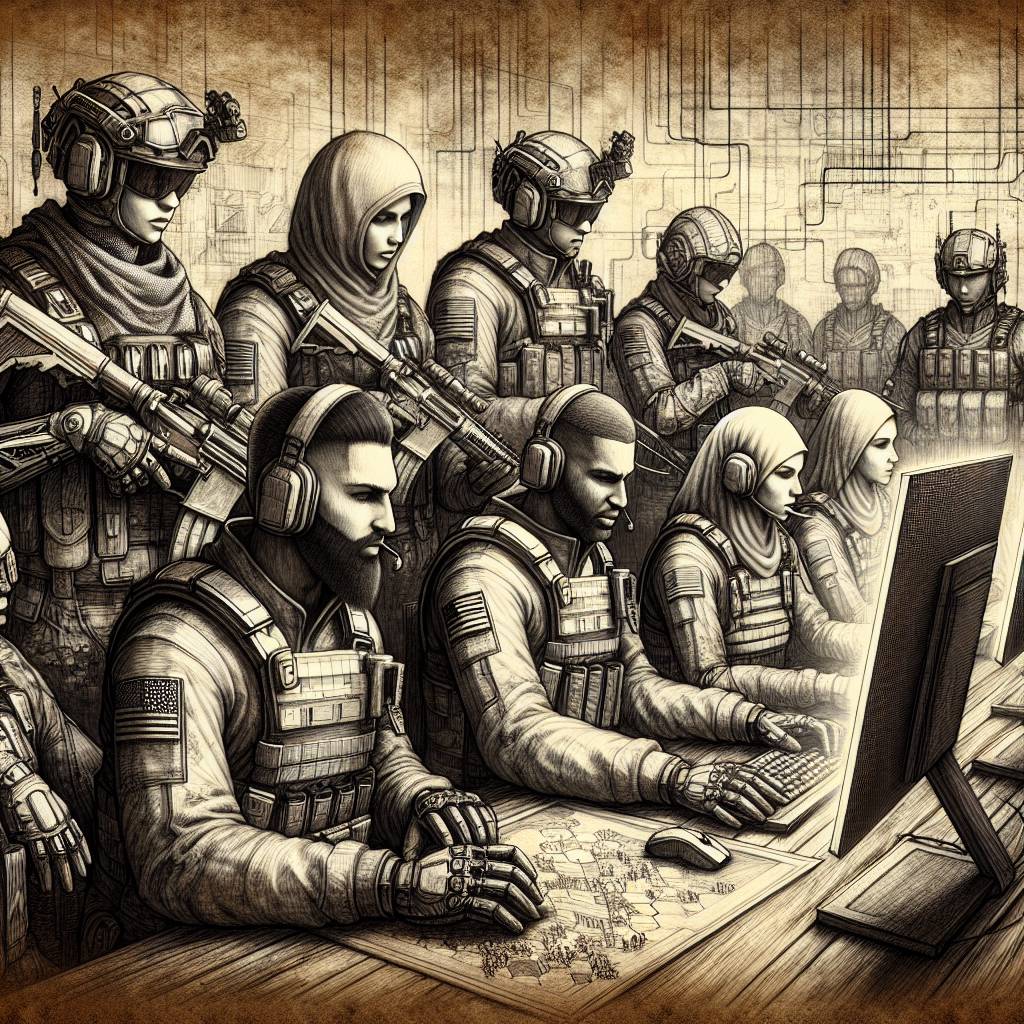UK Military Levels Up: Embracing Esports for Next-Gen Cyber Warriors
The UK’s Ministry of Defence is leveling up its military strategy by embracing esports. By recognizing esports as a military sport, the MoD aims to boost cyber skills and digital literacy among servicepeople. With the International Defence Esports Games set for 2026, video games are now a serious training ground.

Hot Take:
So, the UK’s Ministry of Defence is jumping on the esports bandwagon, not just to upskill servicepeople but to transform them into digital warriors. I mean, who knew that playing Call of Duty could be a stepping stone to becoming a real-life cyber soldier? It’s a bit like your mom saying, “Stop playing those video games and do something productive,” and then the government saying, “Actually, keep playing, it’s good for national security!” If this is the future, maybe I should start brushing up on my Fortnite skills, just in case the MoD comes knocking at my door!
Key Points:
– The UK’s Ministry of Defence (MoD) has officially recognized esports as a military sport, believing it can enhance cyber understanding and digital literacy.
– An esports facility was recently installed on the HMS Prince of Wales aircraft carrier, demonstrating the MoD’s commitment to integrating gaming with military training.
– The MoD aims to improve team coordination, rapid decision-making, and innovation through serious video games.
– The Ukrainian military has successfully used bespoke drone simulator games to train drone pilots and cybersecurity specialists.
– Russia is also tapping into gaming culture, recruiting teens based on their performance in video games for military purposes.
Gaming: The New Battlefield?
In a move that would make even the most seasoned gamer do a double-take, the UK’s Ministry of Defence is embracing esports as a vital part of military training. Yes, you heard that right. The MoD is taking the joystick into the war room, hoping that virtual skirmishes can translate into real-world defense skills. Imagine the new recruitment ads: “Want to serve your country? Love video games? Join the MoD!” They’ve seen the potential in digital literacy and cyber understanding, and they’re betting big on it. The Royal Navy even decked out the HMS Prince of Wales with an esports facility—now that’s what I call a battleship with a bonus!
Esports: A New Weapon in the Arsenal
So, what’s the big idea behind turning servicepeople into esports champions? According to Lieutenant General Sir Tom Copinger-Symes, these games are more than just pixelated fun; they’re a serious tool for building warfighting readiness. As battlefields increasingly go digital, the MoD believes that video games can help troops develop crucial skills like team coordination and rapid decision-making. It’s like the MoD has discovered the power of Mario Kart for military strategy. And with our friends in Ukraine using esports to train drone pilots and cybersecurity experts, it seems like this could be the next big thing in modern warfare.
A Gaming Revolution: Lessons from Ukraine
In Ukraine, the military has been pioneering the use of esports to boost their combat capabilities. With drone usage becoming a key part of their strategy, they’ve found that gamers make excellent drone pilots. Who knew that all those hours spent honing hand-eye coordination in front of a screen could lead to military prowess? Ukrainian instructors even describe drones as the new Kalashnikovs, with gamers’ nimble fingers being their best asset. Plus, they’ve got young trainees learning the ropes early on, though thankfully, they’re not sending kids to the front lines. Well, unless they’re fighting off creepers in Minecraft.
Russia’s Game Plan: Recruiting the Young
Not to be outdone, Russia is also getting in on the gaming action, albeit with a slightly different approach. They’re recruiting teens based on their performance in a game called Berloga, where bears fend off bees with drones. It’s like Winnie the Pooh meets Call of Duty. These young talents are then funneled into military roles, designing drone components in secrecy. It’s a bizarre blend of gaming and geopolitics, but in a world where digital literacy is becoming as crucial as traditional combat skills, it seems like the logical next step. Perhaps in the future, we’ll see esports athletes trading jerseys for military uniforms.
Cyber Skills: The Esports Solution
The MoD’s esports initiative is just one of many strategies aimed at bolstering the UK’s cybersecurity capabilities. With a shortage of cyber specialists, the MoD is fast-tracking recruits with GCSEs into cybersecurity roles, condensing training from ten weeks to just one month. It’s a crash course in digital defense, and the first International Defence Esports Games are slated for 2026. The British Esports Federation and a leading esports production company are on board, so expect a showdown of epic proportions. It’s a brave new world where gaming isn’t just a pastime—it’s a pathway to national security.
In conclusion, as the line between gaming and military training continues to blur, it seems the future of defense may well be in the hands of those who can master both real-world and virtual battlefields. So, if you’re a gamer, maybe it’s time to level up your skills—your country might just need you!
